SR Bishnoi, Subhashree Sahu and Anitha Kumari P participated in a 10-day online training programme organized by ICAR-NAARM, Hyderabad. They share their experience from this training programme here.
CONTEXT
Agricultural Extension Research in India warrants a rigorous inquiry of newer paths and novel scientific approaches for rapid growth of the discipline. This calls for theory building that offers scientific pathways and solutions to all stakeholders. It’s imperative to inculcate the advances and good practices in extension research towards redefining and refining, taking into consideration the fast pace of knowledge and innovation systems. Evaluation of programmes, policies, schemes and projects requires scientific tools and methodologies in Social Sciences. With these primary objectives in mind the virtual Training Workshop was held to upgrade research competencies and to reorient all personnel to the advances in evolving scientific tools, theories and methodologies, including the diversities seen in documenting research outputs, outcomes and impacts.
There were 37 participants in the training comprised of research scholars and employees of ICAR and SAUs from 15 different states of India – from the diverse fields of Agriculture, Veterinary Science, Fisheries Extension, Agricultural Economics, Horticulture, Agro-forestry and Community Science. The online platform was supported through WhatsApp along with email communications, making the programme participatory and interactive in communication and problem solving. The training programme was organized for 10 days with four sessions per day, handled by 20 resource persons from SAUs, ICAR, and international research organizations.
INAUGURAL SESSION AND ORGANIZATION OF THE TRAINING PROGRAMME
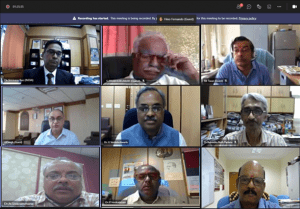 Figure 1 Inaugural session
Figure 1 Inaugural session
The major suggestions which emerged from the Inaugural Session were that Extension Research needed to be more scientifically robust, be able to contribute significantly to policy decisions, and develop theories and vigorous models, which can be targeted towards SDGs and doubling of farmer’s income. With regard to advances, there is an urgent need for integrating the local Agricultural Knowledge and Information Systems (AKIS) into extension research if it wants to be relevant to the diverse needs of farmers. Emphasis was laid on a supportive environment for farmer-led innovations.
DESIGN OF THE TRAINING PROGRAMME
The 10-day training programme had two sessions each of one and half hours, per day, two each in the forenoon and afternoon. Each session was interwoven with theory and practical, followed by clarifications and discussions. The sessions covered a range of topics – from status and prospects of research in Extension, research designs, sampling methods and scaling techniques, data analysis and software, evaluation theories, modelling and analysis, to documentation and research paper writing techniques. The participants were divided into groups of six for concept note writing and presentation. This was a very interactive learning process, promoted inter-disciplinary team effort, and evoked great interest among the participants.
MAJOR THEMATIC AREAS AND LEARNING
Changing face of extension and need for convergence
The technical session started with an ice breaking event followed by discussions about recent developments in agricultural research and prioritization of research topics under different agro-climatic conditions. Experts from Social Science research and statistics divisions from ICAR, SAUs and other international organisations of repute were invited to train the participants. We learned about the ICAR network research project ‘New Extension Methodologies and Approaches (NEMA)’ involving 11 ATARI[1]s and 6 ICAR Research Institutes, i.e., IARI, CAZRI, CIFA, NDRI, IVRI and NRRI[2]. Recently developed improved agricultural technologies across the agro-ecosystem are identified and disseminated across the regions for benefit of the farmers. Also, we learned of the various issues and challenges faced by extension workers at the ground level. The emerging concept of FPOs and nutritional security can be effectively implemented among farming communities only if field level feedback is available for extension research. The KVKs and ATARIs can play a major role in this process. The session also enriched our knowledge of the various farm innovations for agricultural transformation under different agro-climatic zones of the country. Research value chain, current status, emerging trends and good practices in extension research were also discussed.
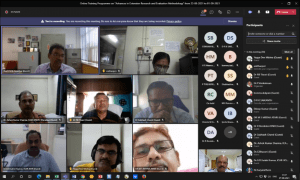 Figure 2 Interactive learning process
Figure 2 Interactive learning process
Basics of extension research, data collection and analysis
Our knowledge of theories and practical propositions vis-à-vis framing research questions, types of research, research designs, types of variables, formulation of hypothesis, sampling methods and tools, data cleaning, etc., was refreshed. The basic principles of sample size estimation gave much-needed clarity. We learned of the various types of scale construction methodologies in Social Sciences, measurement tools of variables using scales and indices. It was completed with practical sessions for better retention. We also reviewed the methods and steps in concept note preparation, project proposal, and researchable concept identification. Then, we acquired a basic knowledge of the various data sources and data collection methods, the online and offline tools and agencies offering data collection services. Other subjects dealt with included hands-on training experience of using R software, especially on non-parametric data analysis, with appropriate cases and examples in interactive mode. We were also introduced to R-based open-source software (Blue Sky). Furthermore, we got enriched through demonstration of various techniques for univariate and multivariate data analysis, and learned the distinction between principal component analysis and principal factor analysis, and methods for data reduction in factor analysis. We gained an over-view of the various evaluation techniques, such as Logical Framework Approach, Bennett’s Hierarchy model, etc., for carrying out monitoring and impact analysis of the various extension projects, so as to assess its sustainability and economic viability.
Advanced research methods
An extensive detailing on Concepts, Constructs, Structural equation modelling, its use and application in Social Science research were all part of the programme. The reliability and validity estimation of the developed research instrument was underlined. We also got a bird’s eye view of the qualitative analysis of data which is an emerging development in extension research with wider applications. Thematic analysis was organized through N-Vivo 12 software, with examples of a farmer’s view on the doubling farm income data set, which was very interesting and innovative. The session showcased the methods for identifying concepts in extension research, identification of theme, hypothesis formulation and testing, steps of Thematic Analysis, with ample examples from published research papers. We were familiarized with the concept and process of meta-analysis involving steps such as collection of literature, classification of research publication based on similarity and dissimilarity of sample size, statistical methods used, and online tools and techniques for calculating effect size. We learned the importance of meta-analysis for evidence-based policy advocacy in Social Science research. It was interesting to learn about the basic theory and concept of social network analysis through Net Draw software. It was very useful to learn about the methods of measuring ‘centrality’: betweenness centrality, closeness centrality, eigenvector centrality, and degree centrality for the identification of key actor and distance between the actors in a particular network diagram.
Publications for influencing policy
We learned that the knowledge products were the tangible outputs of the knowledge flows across the extension activities through which knowledge is generated and mobilised, modelled, deposited and systematised, distributed, used, evaluated and transformed. The knowledge products from extension research include books, reports, guidelines, action plans, newsletters, journals, policy briefs, electronic portals, videos, and lessons synthesised from processes and projects. We were amazed to learn that the research results can be published in various formats for different audiences, such as Policy Papers, Policy Briefs, Discussion Papers/ Working Papers, Training Manuals, Guide for Facilitators, Book Reviews, Meeting Notes, Books/Book chapters, Blogs, and Good Practices. However, there are various challenges in meeting the writing style requirements. For writing quality research papers or journal articles, there are no short cuts. We need to read diverse research papers, understand the style, improve language skills, and listen to editors. Blogs convey your message in a few words and need to be evidence-backed, not based on opinion. There was a detailed lecture on scientific report writing for a research project, which revitalised our existing knowledge of report writing.
APPLICATION OF LEARNING
- Sharing, cross learning, and team work has critical importance for good quality research;
- An ecosystem of stakeholders and actors is present in Agricultural Extension research, study those factors, interactions and innovations;
- Theory is the basis of research in Social Sciences. Analyse and study them, apply them and build upon them for the growth of the discipline;
- Ethics in research is crucial must be complied with;
- Sample size for research should be reflective of the study objectives and variables;
- Publication in Agricultural Extension is not limited to research papers but can be done through umpteen formats and social media-based means;
- Concept note writing is a scientific process and not just a statement of objectives and budget;
- Farming communities are partner societies and not mere individual entities;
- Reading coherently is the best way to writing well;
- Analysis of data requires skills in software use.
LESSONS LEARNT FROM THE TRAINING PROGRAMME
- The techniques and methodologies in research are fast evolving, so continuous learning should be the mantra;
- Extension research can also adapt methodologies from other disciplines;
- Cutting edge techniques of data analysis may be utilized for quality research and innovative outcomes;
- Steps for winning research proposals through multidisciplinary approach;
- Use of statistical software for analysis and awareness on open software;
- Data need not be quantitative data alone but thematic quality output also;
- Bringing out quality research papers, blogs, periodicals, popular/technical articles;
- Redefining priority research areas in Agricultural Extension.
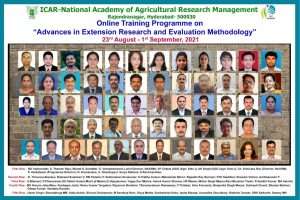 Figure 3 Trainers and Participants of the Training Programme
Figure 3 Trainers and Participants of the Training Programme
LASTING IMPRESSIONS FROM THE PROGRAMME
After COVID-19, this was the first experience where we have attended a 10-day long online training programme. The programme provided much by way of upgradation of knowledge, skill, and research aptitude. The programme schedule was interactive, and well-designed with updated curriculum. The course material was thoroughly covered while time and resources were efficiently managed. Despite the lack of physical one-on-one interaction, the groups participated actively in the exercise. Physical and mental stress were lessened as a result of online theory and practice sessions. We were able to participate in the exercises from the comfort of our own homes or workplaces. During the exercises, we felt more energised and productive. Everyone in the group contributed equally and actively. The training programme focused on cutting-edge practices in extension research. It was invigorating, educational, thought-provoking and competency-building. Certainly, we recommend that such trainings for extension professionals be held on a regular basis. We are thankful to ICAR-NAARM for hosting such a timely and need-based online training session, and we will continue to apply the methodological tools learned from our field studies and investigations.
LIMITATIONS AND SUGGESTIONS
As the training sessions were held online due to the COVID-19 pandemic, it was lacking in the personal touch and feel. Some participants were not able to operate or download the software or faced technical difficulties, which could have been easily avoided if they had physical access to the trainers. Somehow the 10-day duration of the training programme seemed to be short for such a vast topic and we would like to recommend that this be kindly extended to 21 days, for complete coverage of the individual topics. It could also include more practical sessions for better conceptual clarity and higher retention of the topics learnt.
Footnote
[1]ATARI: ICAR-Agricultural Technology Application Research Institute.
[2] IARI – Indian Agricultural Research Institute; CAZRI – Central Arid Zone Research Institute; CIFA – Central Institute of Freshwater Aquaculture; NDRI – National Dairy Research Institute; IVRI – Indian Veterinary Research Institute; NRRI – National Rice Research Institute.
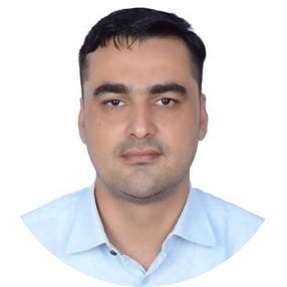 SR Bishnoi, Scientist at Division of Agricultural Extension, ICAR-IARI, New Delhi-110012. Email: srext2011@gmail.com.
SR Bishnoi, Scientist at Division of Agricultural Extension, ICAR-IARI, New Delhi-110012. Email: srext2011@gmail.com.
 Subhashree Sahu, Scientist at Division of Agricultural Extension, ICAR-IARI, New Delhi-110012. Email: subhashree28191@gmail.com.
Subhashree Sahu, Scientist at Division of Agricultural Extension, ICAR-IARI, New Delhi-110012. Email: subhashree28191@gmail.com.
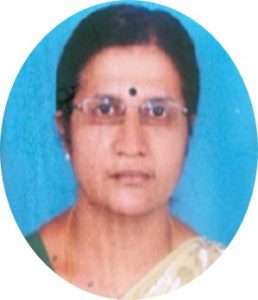 Anitha Kumari P, Principal Scientist (Agricultural Extension) at ICAR-CPCRI, Regional Station Krishnapuram, Kerala- 695033. Email: anithacpcri@gmail.com.
Anitha Kumari P, Principal Scientist (Agricultural Extension) at ICAR-CPCRI, Regional Station Krishnapuram, Kerala- 695033. Email: anithacpcri@gmail.com.

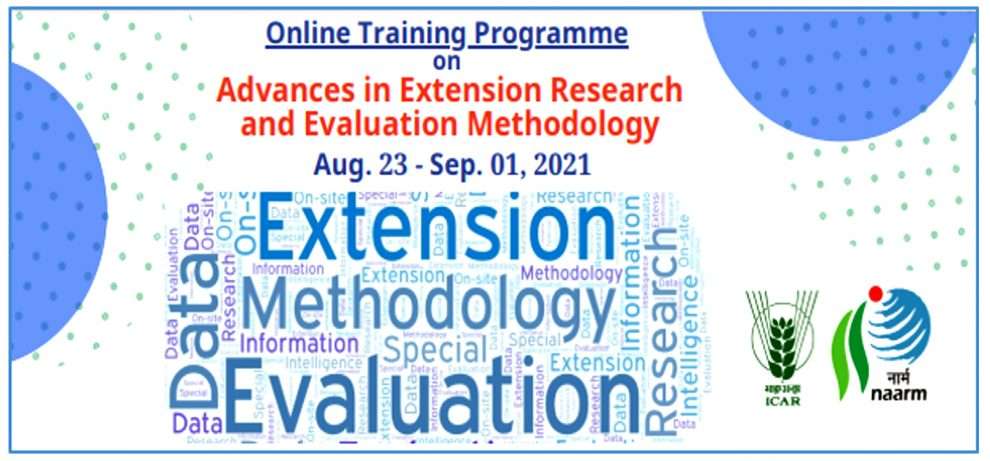

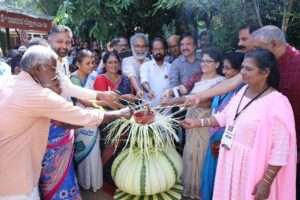

Add Comment